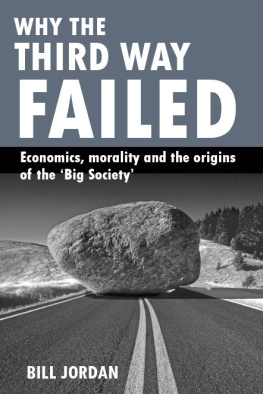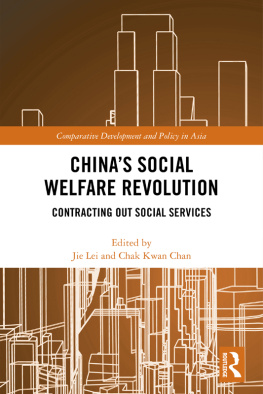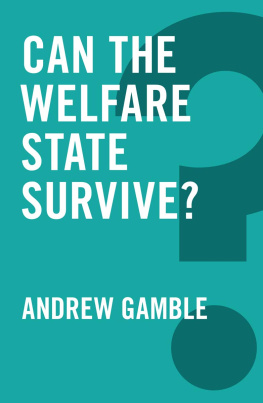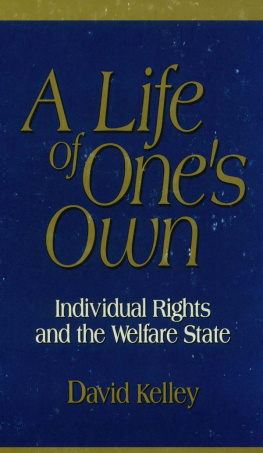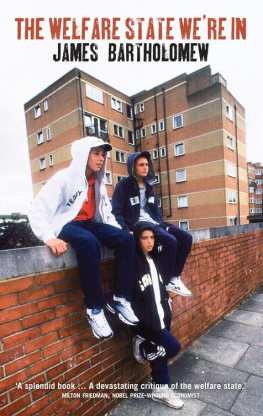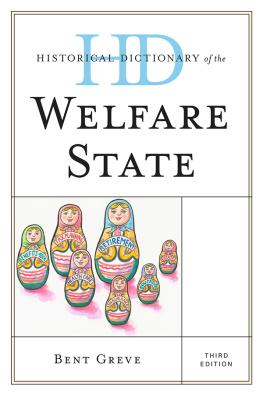First published in 1976 by Routledge and Kegan Paul Ltd.
This edition first published in 2019
by Routledge
2 Park Square, Milton Park, Abingdon, Oxon OX14 4RN
and by Routledge
711 Third Avenue, New York, NY 10017
Routledge is an imprint of the Taylor & Francis Group, an informa business
1976 Bill Jordan
All rights reserved. No part of this book may be reprinted or reproduced or utilised in any form or by any electronic, mechanical, or other means, now known or hereafter invented, including photocopying and recording, or in any information storage or retrieval system, without permission in writing from the publishers.
Trademark notice: Product or corporate names may be trademarks or registered trademarks, and are used only for identification and explanation without intent to infringe.
British Library Cataloguing in Publication Data
A catalogue record for this book is available from the British Library
ISBN: 978-1-138-61373-7 (Set)
ISBN: 978-0-429-45813-2 (Set) (ebk)
ISBN: 978-1-138-60369-1 (Volume 10) (hbk)
ISBN: 978-0-429-46890-2 (Volume 10) (ebk)
Publishers Note
The publisher has gone to great lengths to ensure the quality of this reprint but points out that some imperfections in the original copies may be apparent.
Disclaimer
The publisher has made every effort to trace copyright holders and would welcome correspondence from those they have been unable to trace.
Preface to the reissue
In the final paragraph of this book, I warned that coercive measures against claimants (such as benefits sanctions) could ultimately lead to a prolonged crisis in welfare institutions, a new and invigorated debate about these, and increasingly violent social conflict. This was before the days of workfare, welfare-to-work or activation, which have added a dimension to the coercive powers of the benefits authorities.
The book aimed to review the concepts of freedom currently being canvassed by philosophers and political theorists, and to relate them to real-life issues in welfare states. In the final section, I advocated the introduction of universal, unconditional Basic Incomes for all citizens, as the most promising way to resolve these dilemmas.
In the following decade, a whole collection of scholars, both in the UK (such as Hermione Parker), and in Europe (such as Philippe Van Parijs) came together to form what eventually became the Basic Income Earth Network (BIEN), a worldwide alliance of academics and activists, meeting biennially to promote the idea.
I did not foresee that it would not be in the more developed, industrialised economies that Basic Income schemes would eventually become established, but in Alaska, where windfall oil revenues supplied the funding; or that later unexpected mineral wealth would in turn lead to pilot projects in Namibia, Mongolia and India, inspired and reported by Guy Standing in his book Basic Income: And How we Can Make it Happen (Pelican, 2017).
These pilot studies demonstrated the liberating and life-enhancing effects for women and children of Basic Incomes, making exactly the connections I attempted to outline in this book. The alternative, of growing authoritarianism and social conflict, is an all-too-evident threat in the developed world.
Freedom and the Welfare State
Bill Jordan
Department of Sociology
University of Exeter
Routledge & Kegan Paul
London, Henley and Boston
First published in 1976
by Routledge & Kegan Paul Ltd
39 Store Street,
London WC1E 7DD,
Broadway House,
Newtown Road,
Henley-on-Thames,
Oxon RG9 1EN and
9 Park Street,
Boston, Mass. 02108, USA
Bill Jordan 1976
No part of this book may be reproduced in
any form without permission from the
publisher, except for the quotation of brief
passages in criticism
ISBN 0 7100 8425 0
Three Traditions
To what extent is freedom compatible with attempts by the state to promote the welfare of its citizens? Does liberty reside in independence from state interference? Are welfare institutions necessarily agencies of social control which impose constraints on individual autonomy? Do some people require the states protection, and if so, should they enjoy the same rights and liberties as independent citizens? These questions are the starting point of this book.
But it is not meant to be an abstract and philosophical discussion of these issues. My interests are in social policy and social worknot in building theoretical models of society, but in the ways people actually think and feel and live together. As a framework for the development of an analysis of these questions, I have identified three elements which seem to me to be likely to influence the future relationship between freedom and welfare in our own society. These elements are really no more than constellations of attitudes; but they have come to form separate and recognisable traditions which have run through society like underground streams, coming to the surface in politics, in literature, in philosophy or in everyday life. Each of these traditions has a history of its own, sometimes expressed in an extreme crystallisation of values at a certain point in time, sometimes in more subtle, long-term and subterranean influences upon people and events. There are other such traditions; I have selected the three most relevant to welfare issues and institutions.


